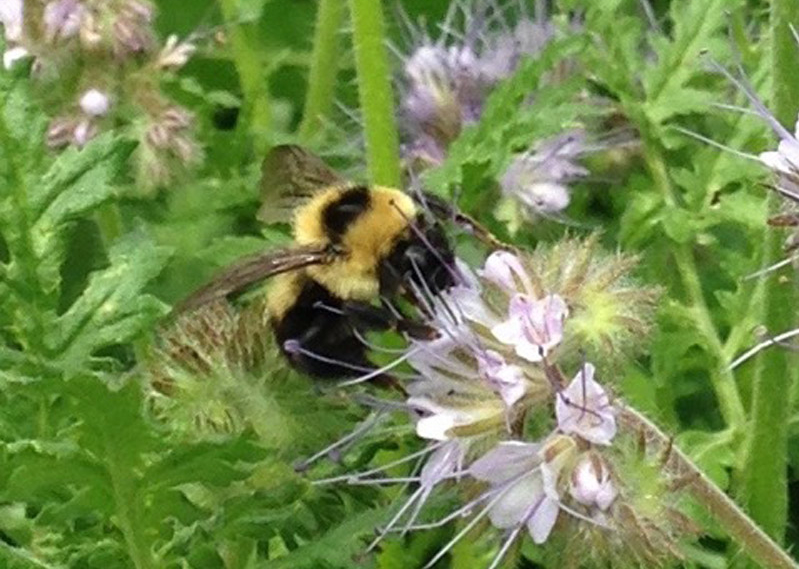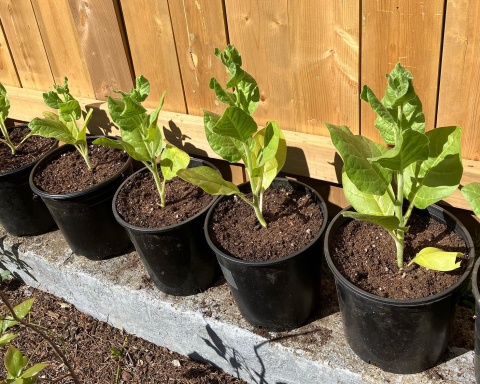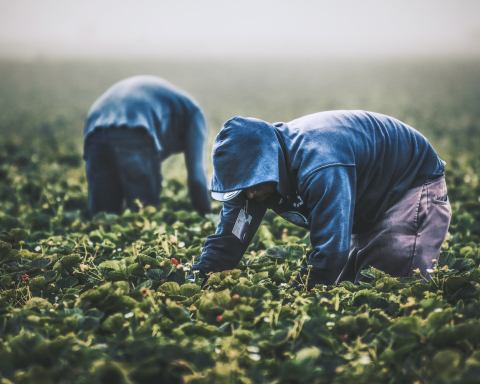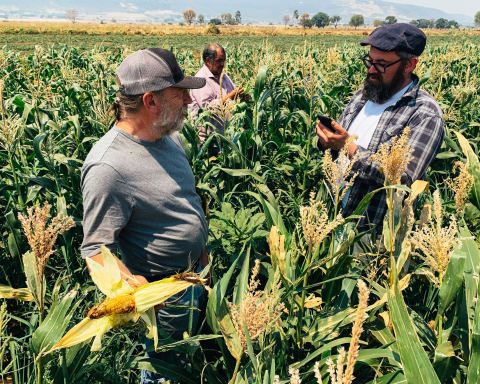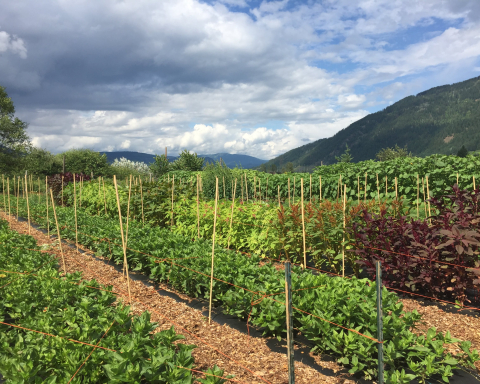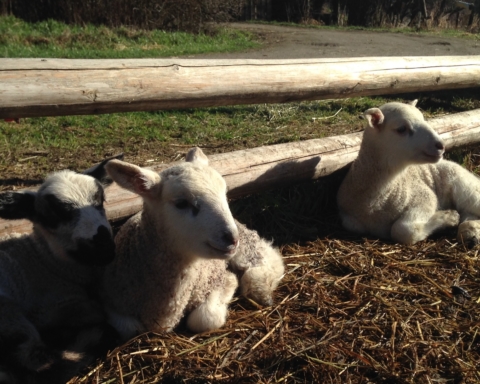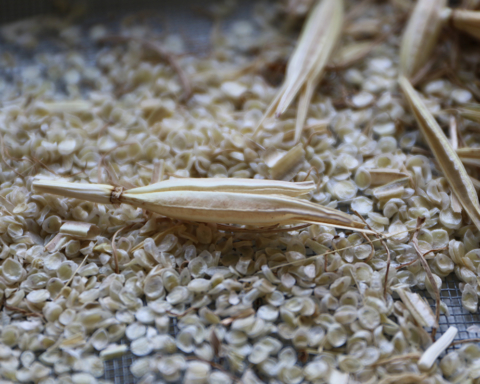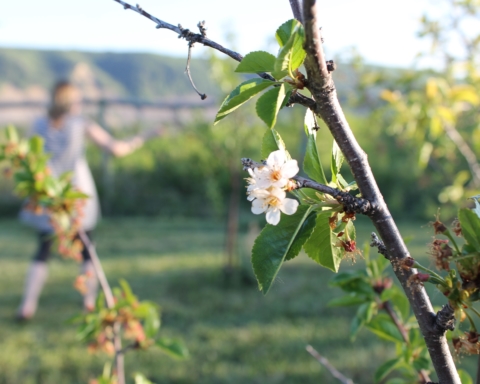Rebecca Kneen
We are learning that we live within a great contradiction: we want to improve our communities’ food sovereignty, but we are inheritors of theft. We desire to act for the benefit of ecosystems, but we are missing countless generations of knowledge that could and should inform our stewardship. How we begin to change the paradigm within which we live will shape the future of ecological agriculture and social justice.
The basis of Indigenous food systems is a non-exploitative relationship to land, recognizing that “we are all related” and that systems are interconnected. Whether categorized as hunter-gatherers, fishers, or farmers, the goal of the relationship was not production or extraction, but living in balance.
Organic agriculture strives to understand ecosystems and to live in balance while at the same time engaging in production for sale. Our history with developing the organic standards has always been a struggle to maintain that balance in the face of extractive agribusiness models attempting to co-opt organic principles. We’ve been pressured to allow large-scale monocropping, high-density livestock production, and systems that treat organics as “just a different set of chemicals”—and we’ve resisted.
As organic farmers, we are aware that we operate within the larger ecological context. Our water sources, our soil nutrients, our air all depend on systems outside our farm boundaries. While we swear at the coyotes and deer, we also know that like the salmon, they are critical to the biosphere we live in. What we have forgotten are the people who are also part of that larger biosphere.
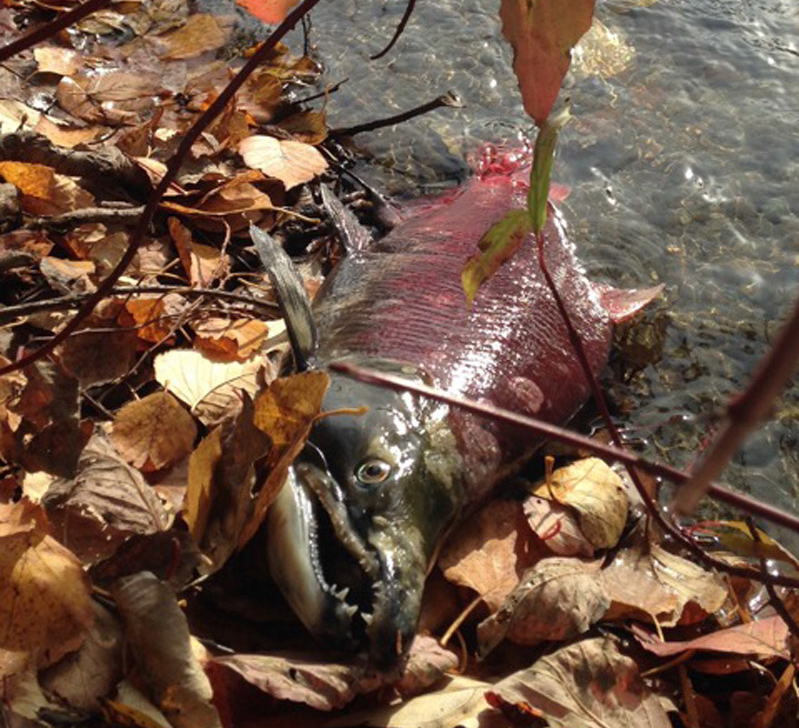
We live within biospheres that were tended by Indigenous people for uncountable generations. The saskatoon, salal, salmon were all cared for in order to provide food for the people and sustain the biome. If we are going to live here, we in turn need to learn how to live here properly.
The key principles of Indigenous food sovereignty will ring a chord in the hearts of organic farmers, as they embody the principles we have also set for organic agriculture:
- Sacred or divine sovereignty: Food is a gift from the Creator; in this respect the right to food is sacred and cannot be constrained or recalled by colonial laws, policies and institutions. Indigenous food sovereignty is fundamentally achieved by upholding our sacred responsibility to nurture healthy, interdependent relationships with the land, plants and animals that provide us with our food.
- Participatory: Indigenous Food Sovereignty is fundamentally based on “action”, or the day to day practice of maintaining cultural harvesting strategies. To maintain Indigenous food sovereignty as a living reality for both present and future generations, continued participation in cultural harvesting strategies at all of the individual, family, community and regional levels is key.
- Self-determination: The ability to respond to our own needs for healthy, culturally adapted Indigenous foods. The ability to make decisions over the amount and quality of food we hunt, fish, gather, grow and eat. Freedom from dependence on grocery stores or corporately controlled food production, distribution and consumption in industrialized economies.
- Policy: Indigenous Food Sovereignty attempts to reconcile Indigenous food and cultural values with colonial laws and policies and mainstream economic activities. Indigenous Food Sovereignty thereby provides a restorative framework for policy reform in forestry, fisheries, rangeland, environmental conservation, health, agriculture, and rural and community development.
(from the Indigenous Food Systems Network: www.indigenousfoodsystems.org/food-sovereignty)
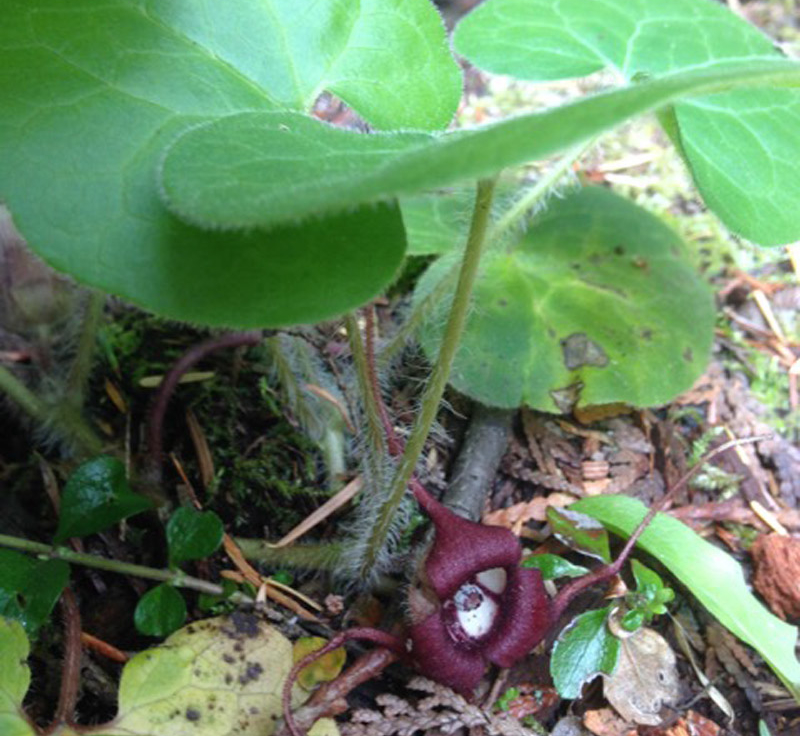
While the language may be a bit different from that found in the organic standard, the ideas of healthy interdependent relationships with the land, daily practice of stewardship, and the ability to be independent of corporate-controlled food systems (especially around seed production) are integral to organic agriculture.
The concepts of Indigenous Food Sovereignty are necessary for us to adopt if we are going to build a food system that upholds these values. Most of these values seem to be part of our organic values already, but we are now on a journey to find common language to express them and to understand that their framework is in itself restorative.
On the ground, in our daily practice of farming, there are many ways we can incorporate these ideas. As organic farmers, most of us already maintain buffer zones around at least part of our farms. We can fill these areas with indigenous plants, bringing back native vegetation and wildlife as we do so. We can provide corridors for birds and homes for beneficial insects, forage for bees, and at the same time begin to understand the delicate balance of living in the more natural ecosystem. Many of us have waterways and other “wild” areas on our farms. When we change our basic language from “wild” to “Indigenous foodlands” we begin to transform our understanding of those lands and the people.
We can begin to build relationships with our Indigenous neighbours by opening these areas to them for harvesting and care. We can open these areas as teaching grounds for wild harvesting methods, and maybe learn about protocols as we do so. We will need to do this with the knowledge and understanding that there will be serious emotional issues around inviting people back to land that was stolen many years ago.
We grow food to feed people. This is central to our idea of ourselves as farmers, but we can also think a bit differently about production. Not everything is bound to a financial transaction, and sometimes what we “produce” is relationships. By feeding elders, by teaching young people, by asking how we can build good relations and what the protocols are, we open the door to non-exploitative relationships.
While our hearts may speak the same language, there are many points of contention between production agriculture and Indigenous ways.
- Land ownership, licensing of mineral, timber, and water rights, the privatization of land and water, and theft by patenting indigenous knowledge and plants all make it “difficult to reconcile outstanding Indigenous land claims and have dispossessed Indigenous hunting, fishing and gathering societies.”
- The fragmentation and division of ecological systems into the sectors of various government agencies “limits the sustainability of the agri-food system which is interdependent on the healthy functioning of the neighbouring Indigenous food system…”
- Agriculture as a whole exists within an economic model based on extraction, production, and “resources” rather than “deep ecological and spiritual relationships with plants and animals that provide us with our foods in a regenerative, life giving paradigm.”
(Above quotes from Dawn Morrison, “Cross Cultural Interface Where Indigenous and Sustainable Agri-Food Systems Intra-act,” 2015 Working Group on Indigenous Food Sovereignty.)
We have to think hard about these issues, as they are central to our food system and our entire mode of thought about how we relate to land. Until we shift our thinking and our language, we cannot also shift our relationships.
If we are going to take responsibility for what we do on the land, we must also take responsibility for the system within which we function. We cannot sell food to fascists, dispossess people from their land, or behave as if we have no responsibility for social justice. Our responsibility for stewardship and sustainability does not end at the farm gate.
For more information on how to be an advocate for Indigenous Food Sovereignty in your community, check out the following resources:
Indigenous Food Systems Network
Rebecca Kneen farms and brews with her partner Brian MacIsaac at Crannóg Ales, Canada’s first certified organic, on-farm microbrewery. They have been certified organic since inception in 1999. Their farm is a 10 acre mixed farm growing hops, fruit, and vegetables as well as pigs, sheep, and chickens. Rebecca has been involved in agriculture, food, and social justice issues since she met her first pair of rubber boots at age three on the family’s Nova Scotia farm.
Photo credits: Rebecca Kneen


